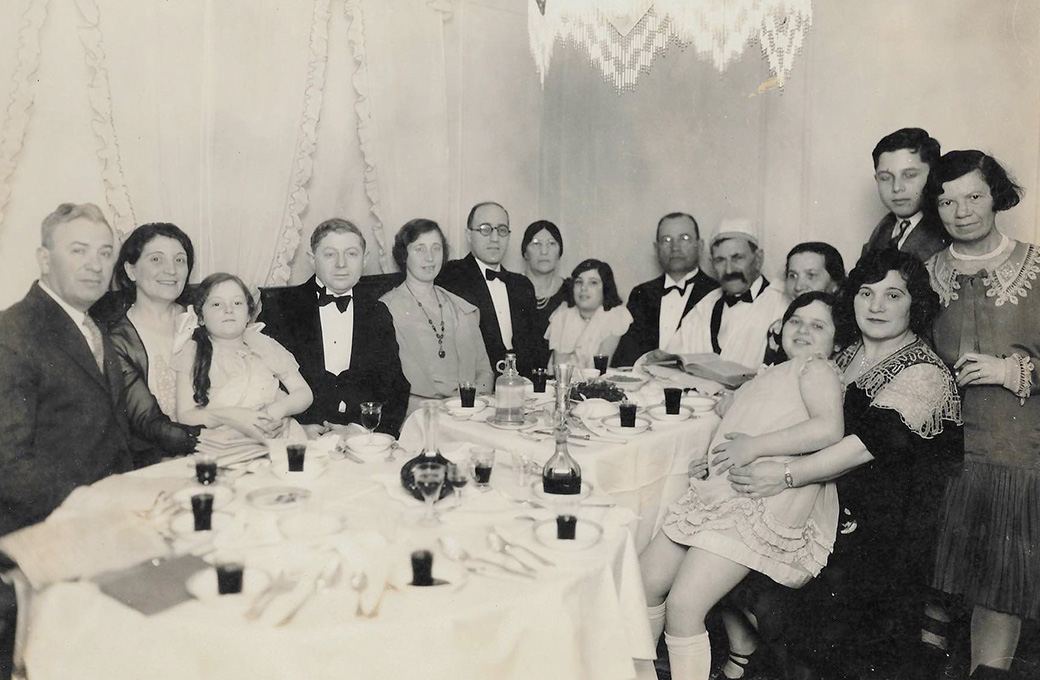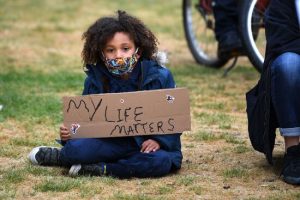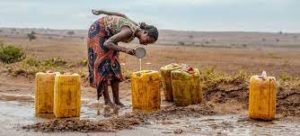Jewish families on Wednesday will again recount the 10 plagues from the Book of Exodus. Only this year will be a little different.
Religious ritual holds power not only because it connects people gathered in one space — it also connects people across time.
For generations Jewish families have gathered for the first night of Passover to recount the 10 plagues from the Book of Exodus — frogs, pestilence, death — and to remember how God delivered the Jewish people from slavery in Egypt thousands of years ago.
Jews observed the Seder in the fifth century B.C. on the Egyptian island of Elephantine, and they observed it in 1943 as German troops liquidated the Warsaw ghetto. And on Wednesday in homes across the United States, families will once again light candles at the Seder table and ask why this night is different from all other nights.
Of course, with a literal plague in their midst, families cannot meet in person this year and may even tweak their Haggadahs — the text that is annually read aloud — to reflect the moment. But the power of Passover remains, perhaps even more so as a symbol of perseverance.
The New York Times asked families around the country to share reflections on the Passover story in this moment. Their words, edited for length, speak to the power of memory, the meaning of plague, and how crockpots and cookbooks can connect us with loved ones of generations past and future.
This story is a celebration of freedom, and how important that is to us. Freedom is an essential part of making the human condition not only bearable but enjoyable. We are used to being there in person, looking at each other, singing together.
If we think of these scourges, in the Bible they were often used as punishments, or threats of punishment. But today I think they are trials for us that we have to learn to overcome. We have to do this in a collective way, thinking of neighbors, thinking of friends, thinking of strangers. We have obligations to do things that are helpful to a community of people. We take that obligation seriously, the obligation to tell this story in every generation. That is what we do.
I remember a Seder at my grandmother’s house more than 90 years ago, when I was about 4 or 5. There was a knock at the door. It was a friend of the family, someone they had not seen in many years. Everyone was so thrilled someone had reconnected with us on the Passover. A photographer came and took a photo before the Seder began. I remember everyone who was there. It was a walk-up in Harlem.
Before the Seder I remember going into the kitchen and seeing dozens of eggs boiling away. I remember that we were allowed to drink a little wine, if seltzer was put into it. I was impressed with everyone looking at my grandfather, sitting, leaning on those pillows.
ARAH FRIEDMAN, 33, PHILADELPHIA
‘I am still grieving what could have been.’
I just had a baby and this is her first Passover. It feels dumb, but this is my favorite holiday and I always envisioned what her first Seder would look like. Now we are isolated at home, and though I am happy we are all safe, I am still grieving what could have been. I have hosted a large Seder for friends since 2003. One year it was so large, we held it at a fire hall.
We always take a picture of us together doing an impression of the bad clip art on our Haggadah — a man with a very large mustache. We’ll have to take it virtually this year.
I don’t know how to approach the 10 plagues. It seems crazy to talk about “death of the firstborn” at a time like this. Instead of next year in Jerusalem, I hope that next year we can be back in the Philadelphia suburbs, celebrating together.
MEREDITH LEVY, 37, DENVER
‘This is the 11th plague.’
There’s a lot of irony about the way we are celebrating Passover. Passover is about celebrating freedom, and we don’t have a lot of freedoms right now. People are saying this is the 11th plague. Now is a reminder of the challenges that all people face, that Jews dealt with when in slavery in Egypt. For me, moving forward, we are not going to take things for granted anymore. Things can change so quickly.
We try to act out all of the plagues, that’s something the girls look forward to every year. We throw mini marshmallows for hail. This year we are going to try to make origami plagues, like little green frogs.
Our focus is really on the kids. It is helpful for the kids to understand what a plague is, how it changes your life, and how you do things normally. When we say the plagues, I don’t think we are going to say “coronavirus” and dip our finger into the grape juice. It’s too stressful for the kids. They are literally playing with dolls and saying the doll is sick and has coronavirus. As a parent we need to protect them. I keep saying to them, we can do hard things.

NANCY JANE RICHER, 65, KNOXVILLE, TENN.
‘God will keep this plague away from us.’
I always prepare a Seder the way my mother and father did. Brisket is made in my mother’s Wagner Ware pan. I have her cookbooks from 1946 written in Yiddish and English. My spinach and tomato mina (espinaca and tomate) or matzo kugel is something I’ve made for 35 years and is my favorite. I pack meals and deliver them to those who cannot get out or others who just need a good dinner. In this way I convey the meaning of Passover.SOLIDARITY IN UNEMPLOYMENTOnline communities are set up by unemployed workers to help navigate the nightmare of crashed websites and confusing regulations.
My thoughts drift back into the last century as I recount my father’s memories as a 3-year-old boy watching bodies lowered down from apartments in his tenement building due to the Spanish flu. That plague also passed. With the help of God, nothing will stop the human spirit from eventually beating this plague and eradicating the disease from the face of the earth.
At this time Passover becomes a shining beacon that God will keep this plague away from us. We recite “next year in Jerusalem,” asking for hope always.

ELANA MASLOW, 26, OAKLAND, CALIF.
‘We always say “next year in Jerusalem.” But, what will next year look like?’
The people in this photo have been coming to my house for the first night of Passover for at least 15 years. Ted and Judy bring brisket and macaroons. Janet makes charoset. My dad runs the Seder and oftentimes makes a big speech where everyone cries. We are doing a Zoom Seder. Maybe we will all make our own matzo ball soup, or I can go to my parents and pick up a pot.
I think right now we are just grateful to be alive and to be healthy. My mom has been watching a livestream of Friday night services, my parents do a weekly meditation by our rabbi, and my boyfriend and I are watching a livestream of songs from our Jewish summer camp every Friday night. We are trying to stay connected to our community any way that we know how.
This year I want our Passover to be more social justice-oriented. How can we continue to think critically of the world and best support others that need our help the most? We always say “next year in Jerusalem.” But, what will next year look like?
DONNA SHEWACH, 65, ANN ARBOR, MICH.
‘Opportunities to honor the memories and traditions of our past.’
We are still cleaning our home as thoroughly as ever because that’s what we do for Passover. However, we are not cooking nearly as much, as we will be three instead of 20 or 30. We cut out many of the vegan dishes, except for the mushroom shepherd’s pie, which has become a family favorite. This year I’ll finally have to make dessert, as my family always brings delicious desserts from a kosher-for-Passover caterer.
In the past we have done our best to continue traditions under all circumstances. When our daughter was recovering from a bone-marrow transplant and we couldn’t have company, we made a Seder for our children while the rest of my family put together a Seder at my brother’s home to continue the tradition of being together. Such holidays are opportunities to honor the memories and traditions of our past, and create lifelong memories for the next generation. That must continue.
I don’t have photos of us at the Seder table because, once we light candles to start the holiday, we won’t take pictures.

LINDY K. LURIE, 37, SHAKER HEIGHTS, OHIO
‘The meal will be cooked in our Crock-Pot.’
It’s ironic to celebrate the Jews’ exodus from Egypt and away from Pharaoh and the 10 plagues while experiencing one ourselves. I am a social worker in a large academic medical center in Cleveland, so am seeing direct evidence of this.
Our family has had massive Seders in the past. My maternal grandparents are both Holocaust survivors. My grandfather, Morry Malcmacher, survived with all three of his siblings and his mother. The four Malcmacher siblings — Rushke, Moshe, Yisroel and Morry — were married in two double ceremonies in the Feldafing concentration camp in Germany postwar.
Coming from a Holocaust background, we were all blown away by how beautiful it was to have everyone at the same table, telling the same story that our ancestors had told about the exodus, having had their own exodus from postwar Europe.
We are so sad we are not able to be all together, but we will be so in spirit. My husband and two daughters will be around the table. The meal will be cooked in our Crock-Pot. We will probably do an abbreviated version of our “Seder Songs” which have amazing versions of “There’s No Seder Like Our Seder,” to the tune of “There’s No Business Like Show Business,” and “Elijah,” to the tune of “Maria” from “West Side Story.”




